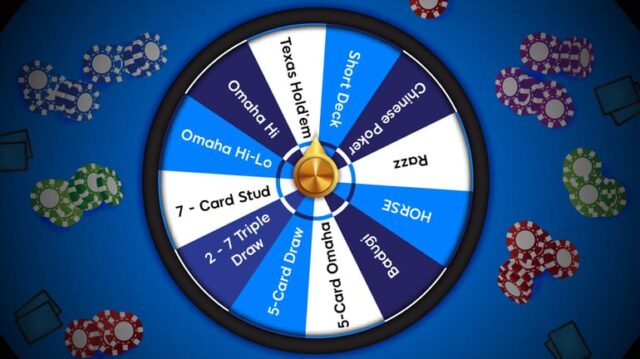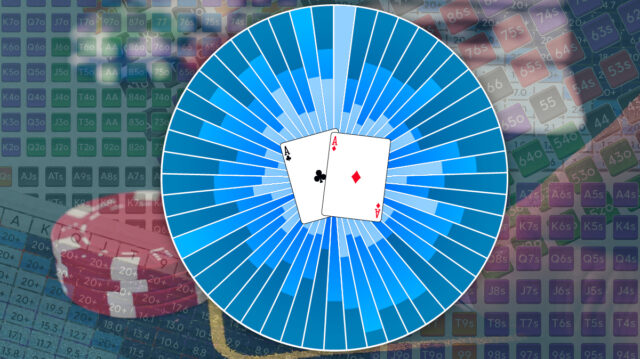
The strategy behind selecting hands in poker is a critical skill, reflecting a player’s understanding of the game’s complexities. This aspect of poker is about making informed decisions, understanding opponents, and adapting to the dynamics of each game.
Mastering hand selection is important for success, as it requires balancing probability, psychology, and situational awareness.
Understanding Starting Hands

The journey to mastering poker begins with a comprehensive grasp of starting hands. These are the initial cards a player receives, forming the basis for future action. The strength of starting hands varies widely, from high-value pairs like aces or kings to weaker combinations.
A player’s position at the table, the action of opponents, and the game format significantly impact the decision to play a particular hand.
Positional Play and Hand Selection
In poker, position refers to where a player sits relative to the dealer’s button. Late positions, like the dealer and cutoff seats, offer strategic advantages. Players in these positions have the benefit of observing their opponents’ actions before making their moves.
Consequently, they can play a wider range of starting hands. Conversely, early positions require more caution, necessitating tighter hand selection due to the lack of information about opponents’ intentions.
The Role of Aggressiveness and Tightness
Poker strategies often revolve around the concepts of aggressiveness (playing many hands) and tightness (playing fewer, stronger hands). Aggressive players, while potentially reaping larger rewards, also face higher risks.
Tight players, on the other hand, minimize risk by entering pots with only strong hands. The balance between these approaches depends on the game’s dynamics and the player’s skill in reading the table.
Hand Selection in Different Poker Variants

Different poker variants demand distinct approaches to hand selection. In Texas Hold’em, for example, strong starting hands are pivotal due to the community cards shared by all players. In contrast, games like Omaha allow players to use exactly two of their four hole cards, leading to different strategic considerations for hand selection.
Adjusting to Opponents’ Styles
Adapting hand selection based on opponents’ playing styles is important. Against aggressive players, it pays to be cautious and wait for strong hands. Conversely, when facing passive players, expanding the range of playable hands can be advantageous. Understanding and adapting to these styles can significantly improve a player’s performance.
Hand Selection in Tournament Play
Tournament poker introduces additional layers to hand selection strategies. Factors like the tournament’s stage, stack sizes, and the pressure of increasing blinds play critical roles in hand selection decisions.
As tournaments progress, the emphasis shifts from survival to accumulating chips, often requiring adjustments in hand selection.
The Importance of Hand Ranges
Hand ranges, representing the range of hands a player might hold in a given situation, are a fundamental concept in poker strategy. Developing and understanding hand ranges for both oneself and opponents is key to making informed decisions.
It involves predicting the likely hands of opponents based on their actions and adjusting one’s strategy accordingly.
Utilizing a Poker Hands Chart

A poker hands chart is an invaluable tool for beginners and seasoned players alike. It offers a visual representation of hand strengths and probabilities, aiding players in making educated decisions about which hands to play. By consulting such a chart, players can refine their understanding of hand values and improve their hand selection skills.
Balancing Predictability and Unpredictability
A key element in poker hand selection is managing the balance between predictability and unpredictability. If a player becomes too predictable, their opponents can easily adjust their strategies to exploit this weakness. To avoid this, players must occasionally deviate from their standard patterns.
This could mean playing a weaker hand aggressively or folding a usually strong hand in certain situations. Such unpredictable moves keep opponents guessing and can lead to more profitable situations. However, this should be done judiciously to avoid unnecessary risks.
The Impact of Stack Sizes on Hand Selection
Stack size, or the amount of chips a player has, greatly influences hand selection decisions. In situations with a deep stack (a large number of chips), players have more leeway to play a variety of hands, as they can withstand more variance and have the potential to win big pots.
Conversely, with a short stack (fewer chips), the focus shifts to survival, prioritizing high-equity hands that can double up the player’s stack. This dynamic aspect of poker requires players to continuously adjust their hand selection based on their current stack size relative to the blinds and the overall tournament or game structure.
Advanced Hand Selection Techniques

Advanced poker players employ more sophisticated techniques in their hand selection process. These include:
- Blockers ─ These are cards in a player’s hand that reduce the probability of opponents holding certain hands. For example, holding an Ace as a blocker can make it less likely that an opponent has a strong hand like a pair of Aces.
- Hand reading ─ This involves deducing the possible hands an opponent could have based on their actions and betting patterns throughout the hand. This skill is critical in making more accurate decisions about one’s hand selection.
- Equity calculation ─ Understanding the equity (or expected value) of a hand against an opponent’s range is crucial. This helps in deciding whether to enter a pot or fold. Equity calculations often involve complex probability and can be aided by software tools when not playing in live settings.
- Situational awareness ─ Experienced players consider the game’s context, including the tournament stage, the opponents’ playing styles, and even the psychological state of themselves and others at the table. This comprehensive approach allows for a more tailored and effective hand-selection strategy.
Conclusion
Hand selection in poker is not just about the strength of the cards but also involves considering the position, the opponent’s behavior, and the specific dynamics of the game being played. Mastering this aspect of poker requires practice, patience, and a willingness to continuously learn and adapt.






